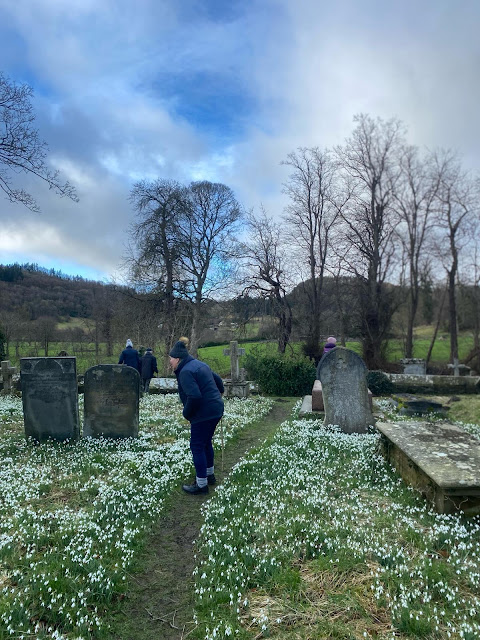* Llangollen's public toilets in Market Street.
Denbighshire
councillors have agreed to look again at a plan to dispose of all its public toilets in a bid to
save around £200,000 a year in running costs.
But at the council’s community scrutiny
committee yesterday (Thursday) a package of measures aimed at examining the proposal
in more depth put forward by Llangollen councillor Karen Edwards was rejected.
Officers’ say the council needs to make savings as it faces an
“unprecedented” financial challenge and the closure proposal is part of a
corporate process to pinpoint cuts in the 2024/25 budget.
The provision of public conveniences (PCs) is a non-statutory
duty. Many local authorities ceased providing this service many years ago.
Denbighshire currently has 20 toilet sites across the county,
including Llangollen, none of which break even financially.
The council aims to transfer as many of them as possible to other
groups or organisations, such as city, town and community councils, so that
they continue to operate but at no cost to DCC.
At yesterday’s scrutiny committee Cllr Edwards made an impassioned
plea for a closer examination of the proposal before it is allowed to go ahead.
She said: “We are all aware of the financial challenges facing this council
and the tough decisions now being taken by the cabinet in its drive to balance
the books in an era of diminishing financial settlements, increasing demand on
services and inflation.
“In our previous meeting we
made recommendations regarding mitigating the cuts to our library services. Our
recommendations were not accepted by cabinet but further work would be undertaken to
identify alternative sources of funding.
“Perhaps the most
important issue before us today is the proposal to close our public toilets or
transfer responsibility for their operation to third parties.
“This particular proposal has
to be considered in the context of the council’s core policy objectives, one of
which is the promotion of tourism to grow the regional economy. As we all know,
tourism plays a vital part in Denbighshire’s economy with 6.03 million visitors
in 2022.
“In the case of the
Llangollen ward that I represent along with Councillor Keddie, our town centre
car park has a public convenience which is used in part by coach parties. Without
this facility Llangollen will no longer be able to offer a convenient ‘relief
stop ‘ for coaches and they may well cease to stop there.
“Businesses in the town will
suffer and the closure would therefore be an illogical act of self-harm. The
car park in Market Street generated an income of £171,396.61 in 2022/23, this
equates to 43% of DCC’s total income from car parks with public conveniences.
“It is my understanding
having spoken with the Llangollen Town Council clerk that it would be
impossible for them to agree to take over the unsolicited financial liability
of this property asset as they have yet
to be officially consulted and their precept for this forthcoming year was
submitted to DCC last January. If the public conveniences were to close, there
are no suitable alternatives.”
She added: “There is mention
within the report of the Community Toilet Scheme [by which businesses are paid
a grant to allow the public to use their toilets] which has apparently been in
existence for a number of years with very limited uptake - one I believe. You
may argue the point that it hasn’t been widely publicised, but realistically
unless this is proven to be an absolutely viable alternative, your sanguine
approach is at best premature.
“We have a tourism
economy which is growing year on year, and the car parks of Llangollen are
frequently filled to capacity by visitors during the whole year, not just the
summer months. The toilets are an essential part of our public infrastructure
to accommodate the needs of visitors to the town.
“From a policy viewpoint
there is no logic in closing such vital facilities if we continue to spend
money marketing Denbighshire, as a means of generating more visitors - approximately
£718,000. We should consider achieving savings by reducing marketing budgets as
opposed to closing facilities. Public conveniences may well be a non-statutory
obligation but neither is the marketing of this authority to promote tourism.
“It is therefore
unrealistic to propose the removal of the budget for public conveniences
in total as there will be on-going costs associated with de-commissioning
these facilities, updating others, and retaining those considered to be
essential in tourist hot spots.”
Cllr Edwards proposed the
committee make a recommendation for further consideration by the officers
responsible for the proposal and that a further report be produced recognising
that the budget for public conveniences cannot be removed in its entirety
and will identify:
* The take-up of third-party
management of toilets.
* All costs of accommodation work prior to
transfer, or decommissioning, and redundancies, if any
* The on-going budget required to operate those
toilets to be retained as essential tourist infrastructure.
* Revenue costs for retained
toilets to be supported by savings made in the tourism marketing budget and a
review of the charges made for the use of public conveniences.
Even though the decision to bring the plan back to the scrutiny committee was supported her proposal was rejected.
.jpg)

.png)




.jpg)
